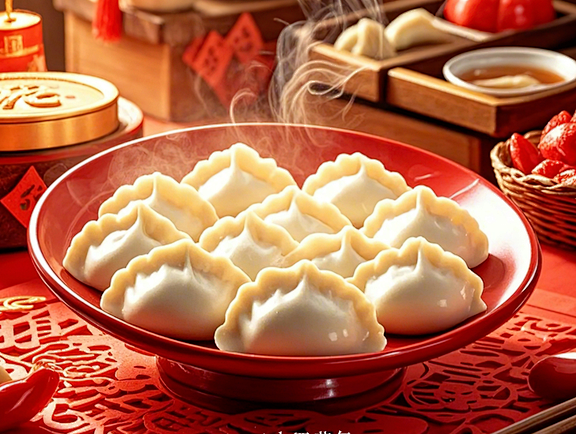冬至—The Winter Solstice

The Winter Solstice is one of the 24 solar terms in the Chinese lunar calendar, marking the point when the Yin energy reaches its peak and the Yang energy begins to rise. It is an important turning point, symbolizing the start of the new cycle of the year. In traditional Chinese culture, Winter Solstice holds significant meaning, and it is often said that "Winter Solstice is as important as the New Year." During the Qing Dynasty, Winter Solstice, along with the New Year and the Longevity Festival, were considered the three major festivals. On this day, the emperor would personally conduct a grand ceremony at the Temple of Heaven to offer thanks to the Heavenly God.

The Winter Solstice typically falls between December 21 and December 23, and this year, it occurred on December 22. On this day, the emperor would offer sacrifices to the heavens in hopes of receiving blessings. In Beijing, there are many auspicious sights to witness. In the morning, the sunlight would shine through the Forbidden City's Qianqing Palace, illuminating the plaque inscribed with "Zheng Da Guang Ming" (Great Brightness) and the five golden dragons below it, from east to west. The plaque dedicated to the Heavenly God at the Temple of Heaven would also be lit up by the first rays of the Winter Solstice sun. Additionally, the golden dragon head in the center of the coffered ceiling of the Longevity Pavilion in the Forbidden City’s Imperial Garden would also be illuminated on this day. In the Summer Palace, the golden sunset of Winter Solstice would shine through the 17-Arch Bridge, creating a stunning visual spectacle. These wonders are not simply gifts from the heavens but rather the result of the ingenious architectural design of ancient China. The ancient Chinese were skilled in observing celestial phenomena, and they used their knowledge of the sun's angle on Winter Solstice to ensure that the sunlight would shine on specific places at the right time.

The ancients also developed health practices based on the solar terms. According to the *Huangdi Neijing* (Yellow Emperor’s Inner Canon), Winter is a time for "closing and storing." It states: "In the three months of winter, this is called closing and storing. Go to bed early and get up late, waiting for the sunlight. Avoid the cold and seek warmth; this is the way to respond to the winter climate and nourish the body's energy." This means that, with the arrival of winter, the cold weather causes plants to wither and insects to hide, marking a season when all things retreat and conserve their vitality. This is the ideal time to nourish the body. People are advised to protect the Yang energy, preserve vital essence, sleep early and rise late, and avoid excessive cold. Moderate physical exercise is recommended, but excessive sweating should be avoided as it can deplete the body’s energy and harm the Yang.

Winter is the best time to nourish the kidneys. According to the ancient saying, "In autumn and winter, nourish Yang, supplement the deficient, and warm the cold," it is important to avoid eating cold or raw foods. It is better to consume foods that are warming yet not overly heaty, such as lamb and radish soup, to counteract the cold and replenish vitality.

As an important festival, Winter Solstice is also associated with various delicious foods. A popular saying goes: "In the north, eat dumplings; in the south, eat rice cakes; Winter Solstice is as important as the New Year, and glutinous rice makes it round." In many northern regions of China, it is customary to eat dumplings on Winter Solstice, as they are believed to help ward off the cold. The saying goes, "If you don't eat dumplings on Winter Solstice, your ears will freeze and no one will care." In the south, particularly in the Jiangnan region, people eat tangyuan (sweet glutinous rice balls) on Winter Solstice. The round shape of the tangyuan symbolizes unity and completeness, and eating them is known as "Winter Solstice Round." In the Guangdong and Guangxi regions, people eat roasted meats on Winter Solstice, symbolizing the addition of dishes and the extension of life.

Winter Solstice has arrived, and spring is on the way. Wishing everyone good health and that all your wishes come true!